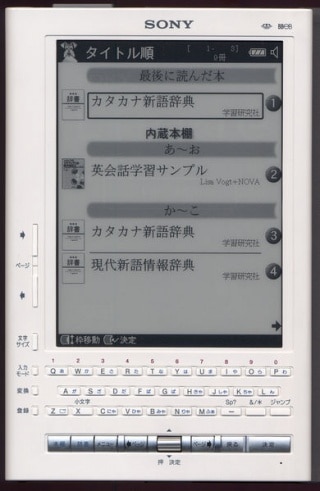
My Paperless Manifesto
Readers of the world, throw off your shackles. Compost your books. The paper age is over.
As we approach the 20th anniversary of the first commercial electronic ink book reader, the time has come to use paper books as fertiliser, and embrace e-books as the only way forward.

Students across the world can stop damaging their spines by backpacking countless kilos of textbooks. By switching to ebook readers, they can carry all of their books for their entire career in a single device. They need not buy books only to use them for a short period; instead, they can have the freedom of not owning anything, and gain access to all of the information they need as a far simpler paid service. Their attention spans will naturally reduce down to better fit the online world. They will avoid the wasted hours reading through assigned texts, only to run the risk of never needing that information. They will instead be connoisseurs of search engines and curated links, safe in a search bubble and protected from superfluous material.
Libraries full of organic sheets have no place in our world. They should be repurposed as information access and research centres, where communities can gather to access and share information.
Almost all books are available electronically, but what are we to do with the now defunct paper books? Simple: we will now have access to decades worth of organic material ready for composting. Modern inks are usually biodegradable, but older inks can contain heavy metals and other contaminants. Fortunately, we have already developed techniques to strip any harmful inks from paper – we can use that to recover the ink, then process the paper into compostable material. The technology exists to break our dependency on paper – we just need to embrace it. Imagine the vast piles of healthy compost we can produce!
Environmental impacts of Information
Paper is not good for the environment.
“Paper production encompasses harvesting trees, pulpwood and pulp production, bleaching, sheet forming, drying, and cutting,” says Gregory A. Keoleian, the director of the Center for Sustainable Systems at the University of Michigan. “Papermaking is a water resource-intensive process and a variety of chemicals are used in the pulping and bleaching process, resulting in air and water pollutant emissions.”
‘You May Need to Read Dozens of Books Each Year to Offset That New E-Reader’. Popular Science, 17 Feb. 2022, https://www.popsci.com/environment/books-ereader-sustainability/.
However, e-book readers also cause environmental damage.
Like any consumer electronic, e-readers are generally energy- and water-intensive. It’s difficult to nail down the exact amount of energy consumed in producing an e-reader from all its component parts, and the international supply chain only complicates the process further, says Dunn. It is estimated that producing one e-reader uses around 100 kilowatt hours of fossil fuels and 79 gallons of water, and also emits 66 pounds of carbon dioxide.
‘You May Need to Read Dozens of Books Each Year to Offset That New E-Reader’. Popular Science, 17 Feb. 2022, https://www.popsci.com/environment/books-ereader-sustainability/.
Which approach is best?
If we were to turn our attention to the planet, buying physical copies of books favours the occasional reader as they won’t make enough use of an e-reader to pay back the total carbon footprint.
Others also opt to support FSC certified publishers that ensure responsible use of forest resources. Of course, there’s always the option of joining the library.
As for e-readers, using e-readers to the end of their natural lives ensures that they are as economical as possible.
‘E-Readers vs Books: Which Are Better for the Environment? ♻CW’. Commercial Waste, 31 May 2022, https://commercialwaste.trade/e-readers-vs-books-better-environment/.
